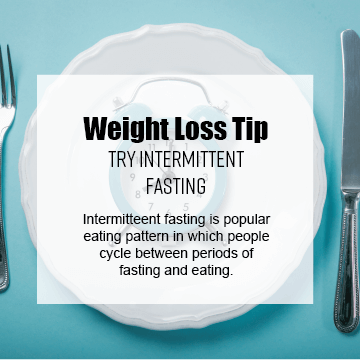
New Year, New You Weight Loss Tip: Try intermittent fasting
February 16, 2019
There’s a ton of incredibly promising intermittent fasting (IF) research done on fat rats. They lose weight, their blood pressure, cholesterol, and blood sugars improve… but they’re rats. Studies in humans, almost across the board, have shown that IF is safe and incredibly effective, but really no more effective than any other diet. In addition, many people find it difficult to fast.
But a growing body of research suggests that the timing of the fast is key, and can make IF a more realistic, sustainable, and effective approach for weight loss, as well as for diabetes prevention.
Intermittent Fasting makes intuitive sense. The food we eat is broken down by enzymes in our gut and eventually ends up as molecules in our bloodstream. Carbohydrates, particularly sugars and refined grains (think white flours and rice), are quickly broken down into sugar, which our cells use for energy. If our cells don’t use it all, we store it in our fat cells as, well, fat. But sugar can only enter our cells with insulin, a hormone made in the pancreas. Insulin brings sugar into the fat cells and keeps it there.
Between meals, as long as we don’t snack, our insulin levels will go down and our fat cells can then release their stored sugar, to be used as energy. We lose weight if we let our insulin levels go down. The entire idea of IF is to allow the insulin levels to go down far enough and for long enough that we burn off our fat.
